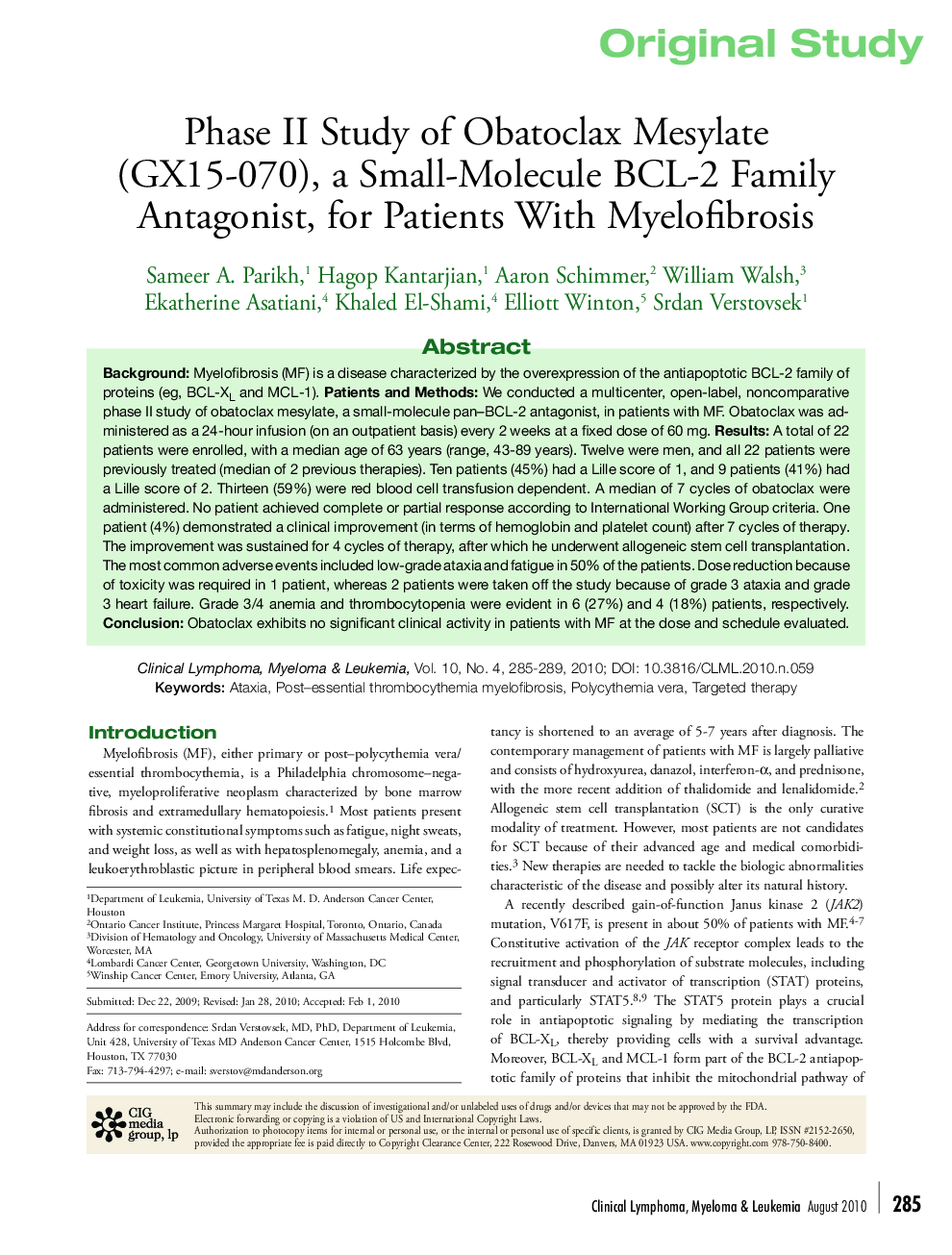| Article ID | Journal | Published Year | Pages | File Type |
|---|---|---|---|---|
| 2755523 | Clinical Lymphoma Myeloma and Leukemia | 2010 | 5 Pages |
BackgroundMyelofibrosis (MF) is a disease characterized by the overexpression of the antiapoptotic BCL-2 family of proteins (eg, BCL-XL and MCL-1).Patients and MethodsWe conducted a multicenter, open-label, noncomparative phase II study of obatoclax mesylate, a small-molecule pan–BCL-2 antagonist, in patients with MF. Obatoclax was administered as a 24-hour infusion (on an outpatient basis) every 2 weeks at a fixed dose of 60 mg.ResultsA total of 22 patients were enrolled, with a median age of 63 years (range, 43-89 years). Twelve were men, and all 22 patients were previously treated (median of 2 previous therapies). Ten patients (45%) had a Lille score of 1, and 9 patients (41%) had a Lille score of 2. Thirteen (59%) were red blood cell transfusion dependent. A median of 7 cycles of obatoclax were administered. No patient achieved complete or partial response according to International Working Group criteria. One patient (4%) demonstrated a clinical improvement (in terms of hemoglobin and platelet count) after 7 cycles of therapy. The improvement was sustained for 4 cycles of therapy, after which he underwent allogeneic stem cell transplantation. The most common adverse events included low-grade ataxia and fatigue in 50% of the patients. Dose reduction because of toxicity was required in 1 patient, whereas 2 patients were taken off the study because of grade 3 ataxia and grade 3 heart failure. Grade 3/4 anemia and thrombocytopenia were evident in 6 (27%) and 4 (18%) patients, respectively.ConclusionObatoclax exhibits no significant clinical activity in patients with MF at the dose and schedule evaluated.
